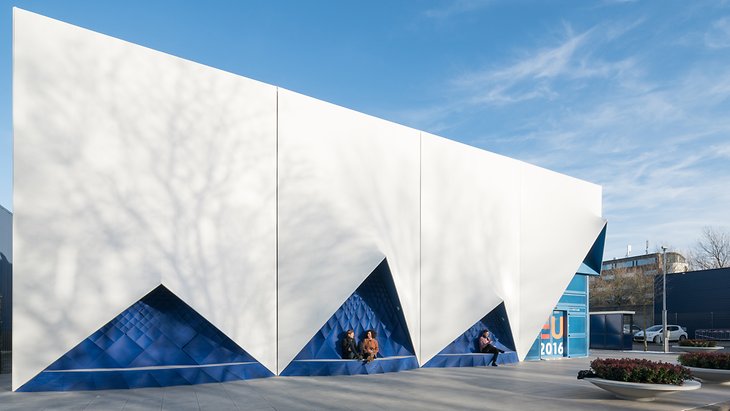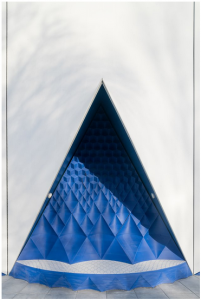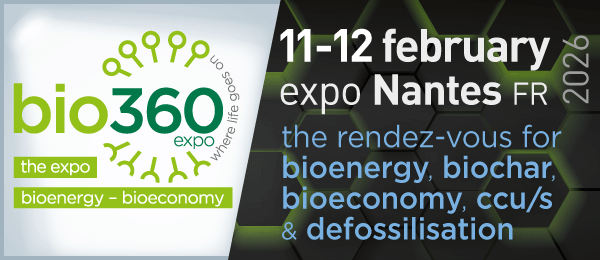For the current EU Council Presidency the Netherlands constructed a mobile conference building in the old harbor area in Amsterdam. Thanks to the 3D-printed façade the “Europe Building” is reminiscent of historical sailing ships and is illuminated in blue – the color of the EU. The materials used for printing were developed by Henkel Adhesive Technologies.

The 3D printed façade of the “Europe Building” in the old harbor area of Amsterdam is illuminated in blue, the color of the EU. The building is reminiscent of historical sailing ships.

Even the façade of the new “Europe Building” was designed by DUS. The individual elements – that are reminiscent of the diversity of Europe with their geometric order from small to big and from round to square – were manufactured by Henkel with hot melt adhesives based on renewable raw materials, and injected with concrete. The bioplastic material provides the individual components with high consistency and stability, and can easily be recycled – at the end of the EU Council Presidency the “Europe Building” will be dismantled.
Henkel’s hot melt adhesives are also being used for the first functional prototypes of 3D-printed furniture such as stools or lamp shades. In the competence center for the automotive industry at Heidelberg site in Germany Henkel is developing complex 3D-printed construction parts for international automakers that are being used as functional prototypes for the testing of novel acoustic and structural solutions.
Source
Henkel, press release, 2016-01-29.
Supplier
Council of the European Union
DUS architects
Henkel KGaA
Share
Renewable Carbon News – Daily Newsletter
Subscribe to our daily email newsletter – the world's leading newsletter on renewable materials and chemicals











